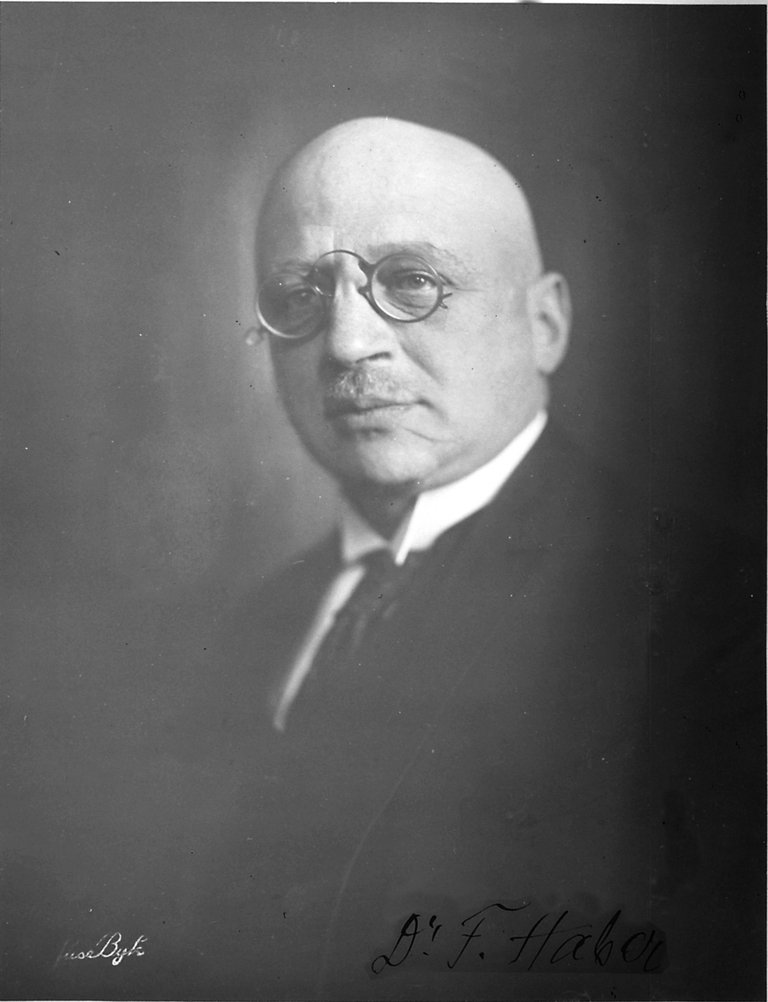Fritz Haber - Experimental Accident that Saved Lives
Does the name Fritz Haber ring a bell? Well probably it doesn't because he isn't Isaac Newton, but this undisputed genius born in Germany in the 1860's has potentially saved more lives than anyone in human history and it wasn't like he intended to save lives, actually he wanted to kill people but by accident, he ended up doing the opposite.
At an early age, Haber climbed the academic ranks in his early age and was able to find his niche in physical chemistry. By 1905, he had finished his third book and this led him to become a professor and he did his very first experiment of Nitrogen fixing but he did more. In the 1900, earth's population was about 1.6 billion people and with this population people were scared that an increase in population would lead to terrible things. Actually, we are currently about 7.9 billion people and those things haven't happened.
Sir Williams Crookes in 1898 predicted that earth's population was going to outpace the supply of wheat by 1931 since the intense farming of the soil was causing a depletion of Nitrogen in the soil raising fear of a global food crisis. Haber started to work on synthesizing ammonia from atmospheric nitrogen and hydrogen under the right condition. He realized that he could make hydrogen if he combined nitrogen and hydrogen under immense heat and pressure circulated over Uranium or Osmium as catalyst.
With this Haber was able to create ammonia which was needed to make fertilizers for nitrogen fixing but the purpose of the experiment wasn't to save a dying world, rather it was to create explosive for the Germans. The intention was to easily convert it to nitric acid which was a major ingredient for explosives.
Haber didn't stop at ammonia creation alone, he was also going to do a lot of experiments in the chemistry world investing a whole lot of things. While he was recruited in the Germany's gas warfare dision during the world war, he was busy mixing gasses together because he was to create gas compounds that were either going to injure people or kill people. In this lab, he created Xylyl Bromide from Bromine but it was not viable in the war so he moved to experiment on chlorine and mustard gas.
Amidst all the chemical weapons he created, he was awarded the nobel prize for chemistry in 1919 for improving the standard of agriculture and the welbeing of humans. But wait, he invented weapons to kill humans and got a nobel prize, well humans are not the only living thing he created weapon against, he even created weapon against insects as he also created the insecticide Zyklon A but it was later used by Hitler after converting it to Zyklon B to take the lives of people.
Although we use fertilizers to grow crops and billions of people around the world rely on it but its environmental impacts are still worrisome as the nitrate from farmlands runoff to rivers and other water bodies leading to the explosive growth of Algae which depletes the oxygen presence in water bodies for sea lives.
REFERENCE
https://nerdfighteria.info/v/tdEE5uvFhOM/
https://www.scientificamerican.com/article/nitrogen-fertilizer-anniversary/
https://www.nobelprize.org/prizes/chemistry/1918/haber/biographical/
https://www.bbc.com/news/world-13015210


Thanks for your contribution to the STEMsocial community. Feel free to join us on discord to get to know the rest of us!
Please consider delegating to the @stemsocial account (85% of the curation rewards are returned).
Thanks for including @stemsocial as a beneficiary, which gives you stronger support.